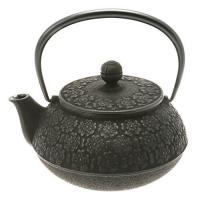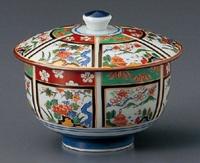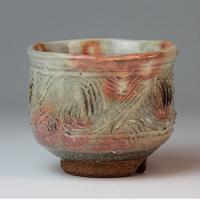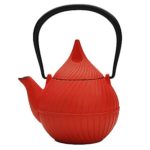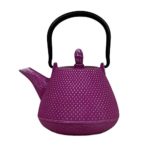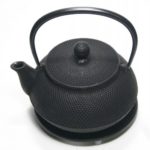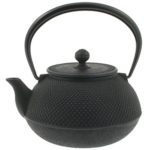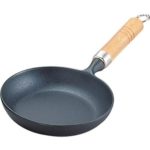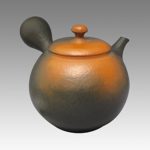Traditional Nambu Tekki teapot
When we drink Japanese green tea, we surely use a kyusu to pour the drink into cups. Most of the Japanese kyusu teapot on the market are made of the ceramics.
You can indeed treat a ceramic teapot easily because it is light. But you shouldn’t overlook the attraction of the Nambu Tekki kyusu. It has superb functionality as well as unique designability.
The name of Nambu comes from the ancient feudal Nambu domain (today’s Iwate Prefecture).
The policy of the domain had traditionally encourage to produce the casting. And one of the daimyo who loved tea ceremony invited a kettle maker Koizumi Nizaemon from Kyoto and made him create a new tea kettle.
This is the beginning of the Nambu Tekki. Nowadays, the Nambu Tekki products cover a variety of kitchen goods including a kyusu, a frying pan, a pot, and a rice cooker.
Features of Nambu Tekki kyusu cast iron teapot
1.High heat retaining
Because all of the Nambu Tekki kyusu are made of the profound cast iron, it keeps the water hot longer than a ceramic teapot.
2.Resistant to rust
The inside of the teapot has an enamel layer, which makes the surface hard to get rust even the water remains.
3.Strong and last long
Though you may feel a little heavy to hold it at first, you hardly break the teapot even if you drop it from the hand (take care not to drop on your foot or teacups).
4.Best temperature for drinking Japanese green tea
The best temperature for popular Japanese green tea Sencha is 90℃-100℃. Nambu Tekki kyusu can keep it (learn more about Japanese green tea).
5.Unavailable for heating
Actually, there are two types of Nambu Tekki cast iron teapot, kyusu and tetsubin. They look like exactly the same appearance. But most of the Nambu Tekki kyusu has the enamel inside the pot, you must not put it on the heat.
In addition, please do not wash the inside with detergent, cleanser, or steel wool. When you wash the teapot, a sponge is the best tool.
Famous Nambu Tekki kyusu cast iron teapot
Iwachu
Iwachu was established in 1902 and has a history of more than 110 years. The company has led the Nambu Tekki industry and taken over the traditional production method designated for preservation.
Classic hobnail, black
Gold and Ptina green/Gold and black
Maple leaf, black and gold
Gold and Patina green/Burgundy and Lichen green
Goldfish, purple
Turquoise/Gold and Black/Gold and Patina green
Gold and Chinnabar/Gold and Orange/ Azure
All of the products are “kyusu” though some are named “tetsubin”. Please check the product descriptions.
If you would like to see the more Iwachu teapots, visit the page!
Itchu-do
In contrast to Iwachu, Itchu-do Company was established by in 2009. Of course, the craftmen produce the cast iron kyusu, but the designer Nakamura Yoshitaka develops the design before. So the Itchu-do’s products are really polished.
Hakeme (brush line), black
Tsubomi (bud), red
Kurumi (walnut), white
Might as well, why don’t you also get a traditional Japanese tea cup (yunomi)?
Imari (Arita) ware
Hagi ware




